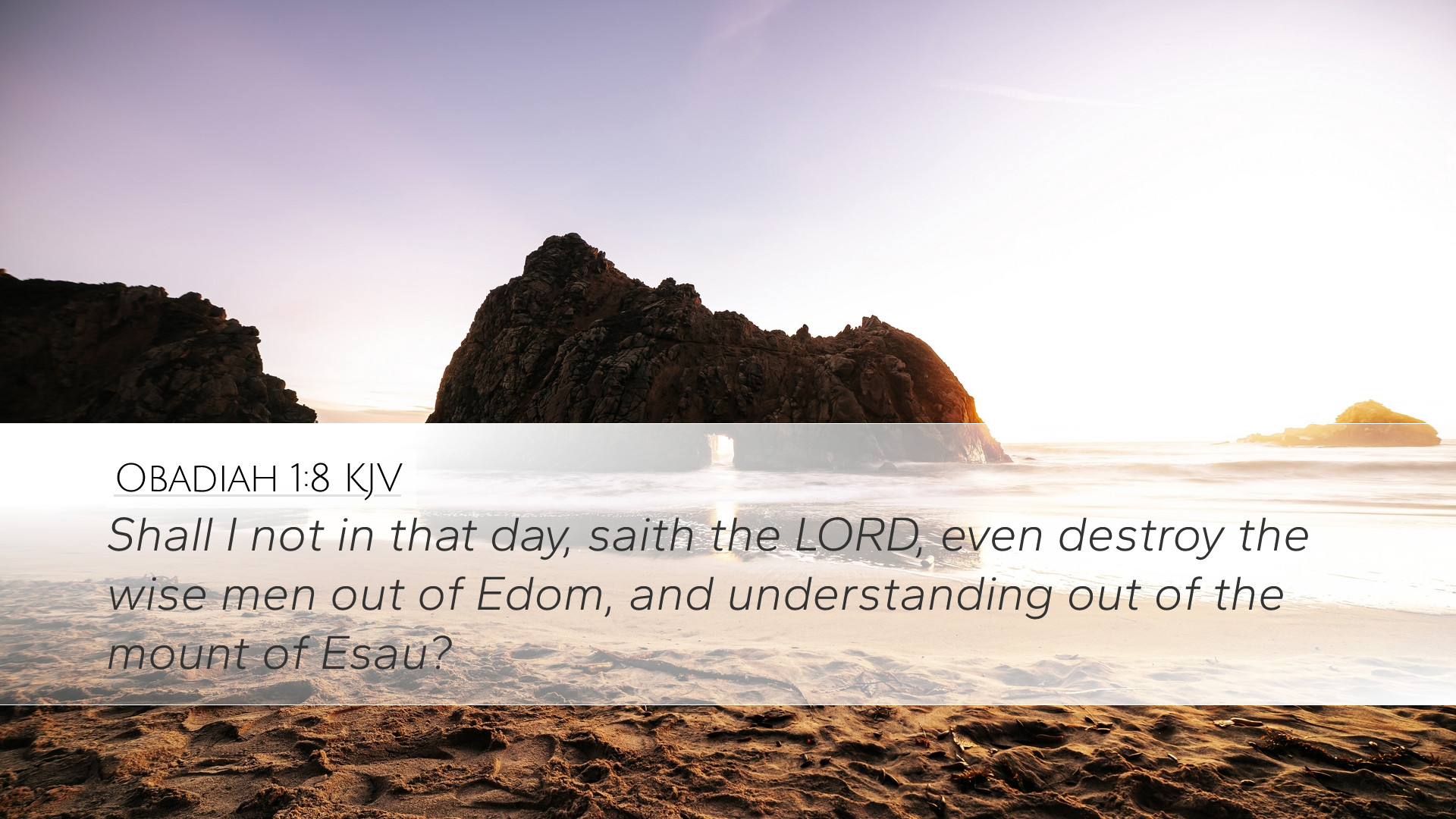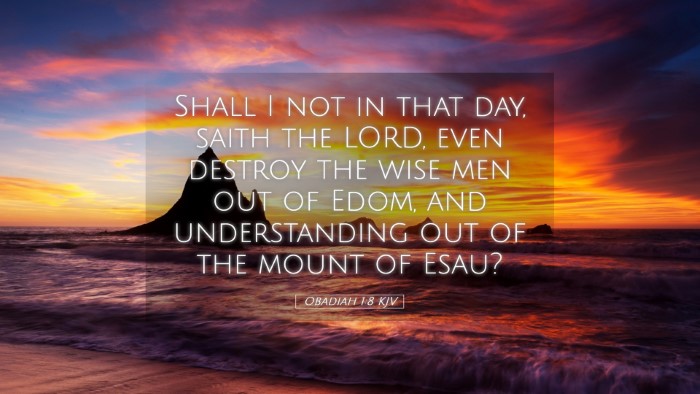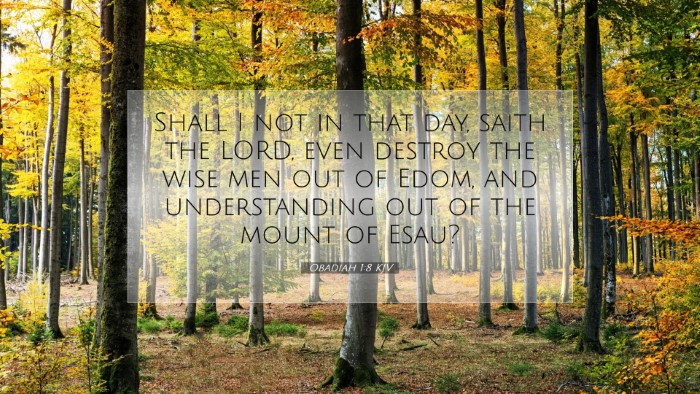Commentary on Obadiah 1:8
The verse Obadiah 1:8 reads:
"Shall I not in that day, saith the LORD, even destroy the wise men out of Edom, and understanding out of the mount of Esau?"
Overview
This verse represents a significant declaration of judgment against Edom, reflecting God's sovereignty over nations and His power to confound human wisdom. The context of Obadiah discusses the impending doom of Edom due to their actions against Israel.
Insights from Public Domain Commentaries
Matthew Henry’s Commentary
Henry emphasizes the theme of divine retribution, where God's judgment manifests as the removal of wisdom and understanding from Edom. He writes:
"In that day, the day of the Lord’s vengeance, the wise men of Edom will have no wisdom left; their sagacious captains, their politicians and statesmen, will be at a loss."
Matthew Henry points out the folly of human reliance on intellectual authority when God decrees destruction. The loss of wise men signifies a broader spiritual blindness that accompanies judgment.
Albert Barnes’ Notes on the Bible
Barnes elaborates on the specifics of “the wise men” out of Edom, suggesting that knowledge and discernment will be rendered useless in a time of judgment:
"God declares that on the day foreshadowed, not only will the strength of the Edomites fail, but their wisdom, which in human eyes appeared so great and formidable, will likewise perish."
This reinforces the idea that human intellect, while often highly esteemed, pales in comparison to divine wisdom and the inevitability of God’s plans.
Adam Clarke’s Commentary
Clarke provides valuable contextual analysis, connecting this verse to the broader narrative of Edom's pride and subsequent fall:
"The wise men of Edom relied on their own strategies, believing they could stand against the covenant people of God. But God will intervene, overturning their wisdom and shattering their defenses."
Here, Clarke ties the removal of wisdom to the Edomites’ proud disposition, which leads to their downfall. He emphasizes God's role in humbling nations that oppose His will.
Theological Implications
The verse calls attention to several critical theological themes:
- Sovereignty of God: God’s power to dismantle human authorities and dismantle systems of thought that oppose His purposes.
- Judgment: It illustrates God’s judgment on nations that align against His chosen people. It serves as a reminder that no earthly wisdom can withstand God's will.
- Human Wisdom vs. Divine Wisdom: The futility of relying on human understanding in the face of God's impending judgment highlights the need for reliance on divine revelation and wisdom.
Pastoral Applications
This verse has several applications for pastors and spiritual leaders:
- Encouragement for the Oppressed: Those facing opposition can find solace in God’s ultimate justice and the assurance that their enemy’s wisdom will ultimately fail.
- Warning Against Pride: The prideful disposition of Edom serves as a cautionary tale. Leaders must cultivate humility and reliance on God’s wisdom rather than their own capabilities.
- Call to Intercessory Prayer: The fate of nations can change through prayer. Just as God promises judgment here, He also desires repentance and restoration for those who turn to Him.
Conclusion
Obadiah 1:8 stands as a powerful proclamation of God’s authority and the ephemeral nature of human wisdom. The collective insights from various commentaries deepen our understanding of Edom's fate, urging readers to reflect on the reality of divine judgment and the importance of aligning one's life under God's sovereignty.


